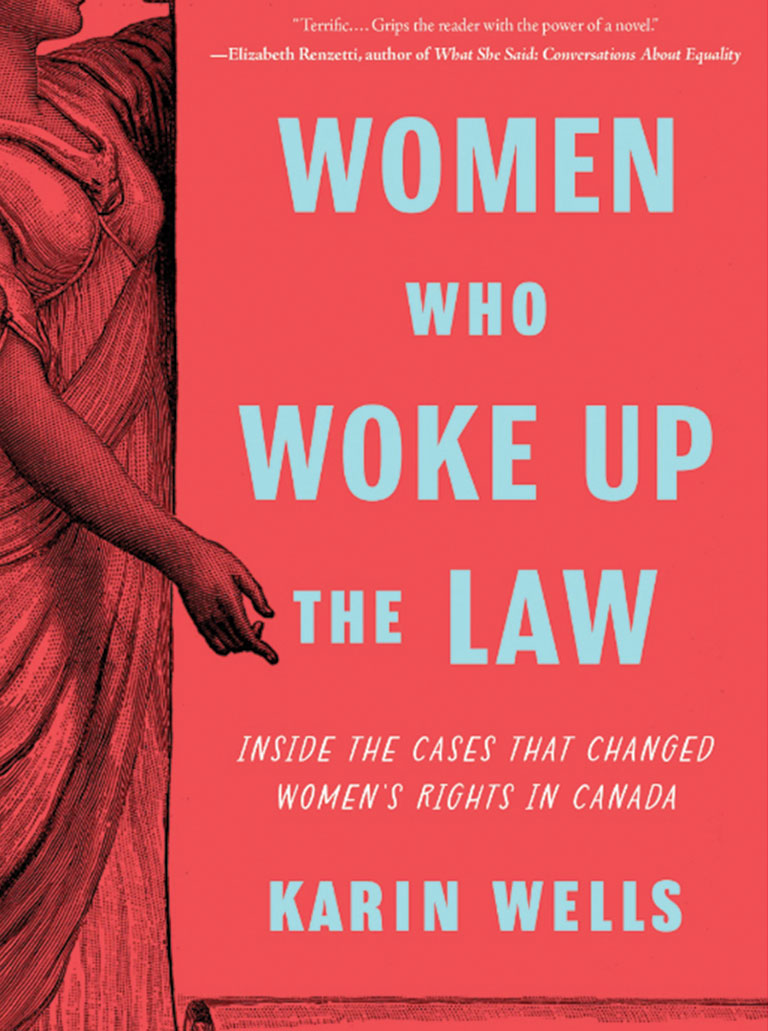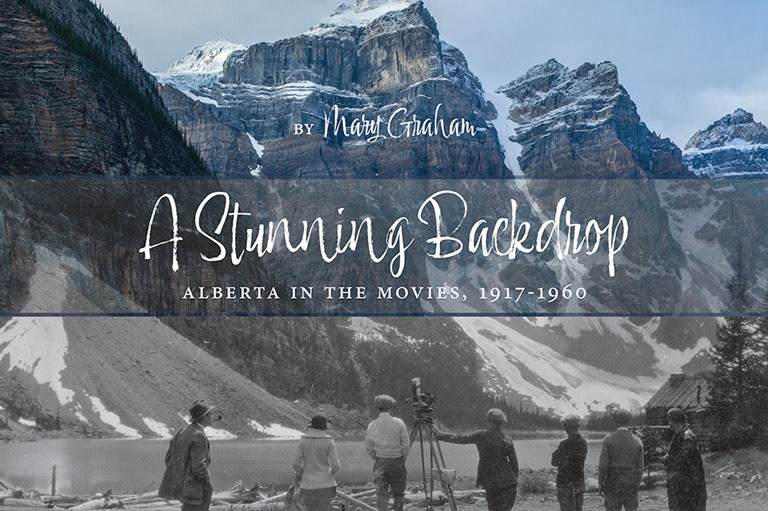Women Who Woke Up the Law

Women Who Woke Up the Law: Inside the Cases That Changed Women's Rights in Canada
by Kerin Wells
Second Story Press
250 pages, $24.95
Women Who Woke Up the Law crackles with lively storytelling power, wit and relevance from start to finish. It reads like a novel but with real-life characters destined to play starring roles in Canada’s legal struggles for equality, whether they wanted to be in those positions or not. Mostly, they did not.
Among those who were okay with the spotlight were the Famous Five, a group of comfortable middle-class Anglo-Saxon women who shepherded the early 20th-century battle to have women declared as “persons” under the law. While this was no small feat, author Karin Wells delicately dissects the complicated legacies of these women to acknowledge that their views on forced sterilization and immigration controls would be unacceptable to feminists today.
There are Famous Five monuments in at least three Canadian cities, but you won’t find anything similar for the Famous Six, a group of Indigenous women who, many decades after the Persons Case, had to hold “bake sales and wild meat dinners” to scrape up enough money to successfully challenge sex discrimination in the Indian Act; they include Jeannette Corbiere Lavell, Yvonne Bedard, Sandra Lovelace Nicholas, Sharon McIvor, Lillian Dyck and Lynn Gehl.
Eliza Campbell (1844-1910), whose story forms the opening chapter of this book, barely has a grave marker, let alone a monument. To illustrate how obscure Campbell was, Wells guides the reader to the edge of a sprawling Toronto cemetery, where, under a bush, concealed by a layer of dirt, you’ll find a tiny gravestone with Campbell’s name and a jarring epitaph: “I did not commit adultery.”
With 7 uniquely curated newsletters to choose from, we have something for everyone.
The story behind Campbell’s case highlighted the woeful unfairness of late 19th-century marriage laws, when wives were essentially chattel. Campbell’s abusive husband falsely accused her of adultery, beat her up, took custody of her children and turned her out without a penny. And all of that was okay under the law. While she successfully proved to Canadian Parliament in 1877 that she hadn’t been unfaithful, the only real grounds for divorce back then (and which had to be approved by Parliament), and received alimony, the law didn’t change. She never saw three of her four children again, as husbands were almost always granted custody at that time. Because she was pregnant with her fourth, the court allowed her to keep that child.
The book also covers several cases involving property rights — of which married women had none, really, until 1978. Florence Murdoch, an Alberta woman who was badly beaten in 1968, then locked out of the ranch property she had worked and helped her husband to purchase, “was the touch paper for the #MeToo movement of her time and place,” writes Wells.
Other cases involve sexual assault, fair treatment in the workplace, abortion rights, self-defence and racism. The shocking, often tragic stories of the women behind these cases aren’t so much images in the rear-view mirror as signposts for understanding the present and navigating the road ahead.
Recent years, for instance, have seen the pernicious use of non-disclosure agreements (NDAs). As the author explains, NDAs originally came out of Silicon Valley in the 1980s to protect valuable trade secrets. “Over time, non-disclosure agreements became the invasive species of contract law” and spread to cover sexual and racial misconduct by the rich and powerful.
As Wells, an accomplished journalist and lawyer, acknowledges, “the law is far from perfect.
Advertisement
If you believe that stories of women’s history should be more widely known, help us do more.
Your donation of $10, $25, or whatever amount you like, will allow Canada’s History to share women’s stories with readers of all ages, ensuring the widest possible audience can access these stories for free.
Any amount helps, or better yet, start a monthly donation today. Your support makes all the difference. Thank you!
Themes associated with this article
Advertisement




